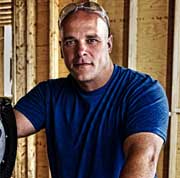Centuries later, the great American homeownership dream is alive and well. According to recently released data from the Census Bureau, the number of Americans becoming homeowners has been at almost record highs. For the last quarter of 2020, the number of homeowners increased by 2.1 million from the previous year. However, as homebuyers’ goals realign to buying them forever home, most face the same question: How do I pay for it? The good news is the home financing market for first-time buyers has never been more diverse in its options. From federally backed first-time homeowner mortgages to renovation loans, here is how to finance your first home.
Check Out Dedicated First Time Homebuyer Loans And Programs
Thanks to the rising number of first-time homebuyers, lenders and the administration alike have recognized the need to provide dedicated financial support to help them get on the property ladder. Now, you have a long list of first-time home buyer loans and programs like the FHA Loan program, which caters to applicants with lower credit scores. Compared to the minimum credit score accepted by conventional mortgages, the FHA Loan program widens the pool for everyone to buy their first home. Most recently, the FHA guidelines on student loans were changed to further improve this.
Currently, the minimum acceptable credit score for an FHA is 500, but you will need at least 580 to get maximum financing for your new home. According to the FHA guidelines, if your credit score is between 500 and 579, you are limited to 90 percent of the loan-to-value (LTV) ratio. As a first-time homebuyer, the FHA loan program is attractive since it comes with a minimum downpayment and helps you avoid unnecessarily high home interest rates – a common but expensive misstep by homeowners. However, you do need to know your credit score ahead of applying. If you do have a poor credit score, it gives you time to improve it. Other first-time home buyer loan programs include the VA loan program, which helps veterans buy a home with no downpayment.
If you plan on buying a home built after June 15, 1976, you may want to consider special loans that provide financing for buyers of manufactured homes and help them purchase or refinance the property in an affordable way. With manufactured home loans, you get lower rates than typical mortgages and the ability to customize your repayment terms. It also helps buyers avoid stringent mortgages, which can make a big difference in monthly payments.
Apply For State Supported Home Financing Programs
Certain states will have their own financial assistance programs for first-time homeowners and residents. It is worth checking with your local lenders and state authorities. Often, mortgage lenders will have partnerships in place with the state to help first-time homebuyers. For instance, Iowa’s first-time homebuyer programs include the IFA FirstHome program and the Homes for Iowans program. They each come with their own acceptability criteria, like an income limit of $141,680. To get a better understanding of your potential loan options and monthly payments, you can use a Loan calculator, which takes into account factors such as loan amount, interest rate, and loan term to provide an estimate of your monthly mortgage payment. This can be a useful tool to help you plan your budget and make informed decisions when considering homeownership.
Buy A Fixer-Upper And Opt For A Renovation Loan
Another option for buying your forever home is to buy a fixer-upper and apply for a home renovation loan. This can be a good option in 2 ways: properties that need repairs often sell for much cheaper, making them more affordable for a first-time homebuyer. Secondly, a renovation loan can be an alternative home finance option to help you create the home you always envisioned.
If you want to buy a fixer-upper, the FHA 203(k) Loan Program (or Rehab Loan) can help you finance the home and up to $30,000 in renovation costs. There are certain criteria, however. Most lenders ask for a credit score between 620 and 680 (although 580 is the minimum in the program). You will also need a 3.5 percent downpayment, which only applies to your primary residence. Alternatively, if you are a supporter of sustainability and green living, the Energy Efficient Mortgage programs allow you to make green upgrades to your homes, like the installation of solar panels or wind power.
Buying your first home can seem daunting. After all, it is a significant financial commitment- possibly the largest financial commitment you will make in your life. With so many moving parts to buying a home, the last thing you need to worry about is financing it. With ample options for first-time homeowners, the dream of homeownership is now much more of a reality.











